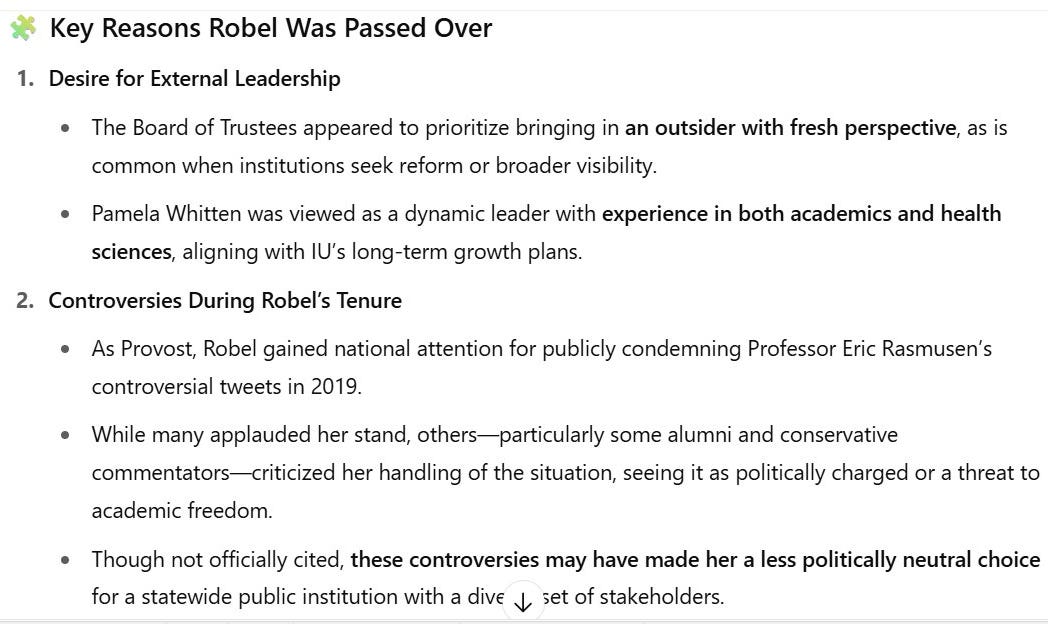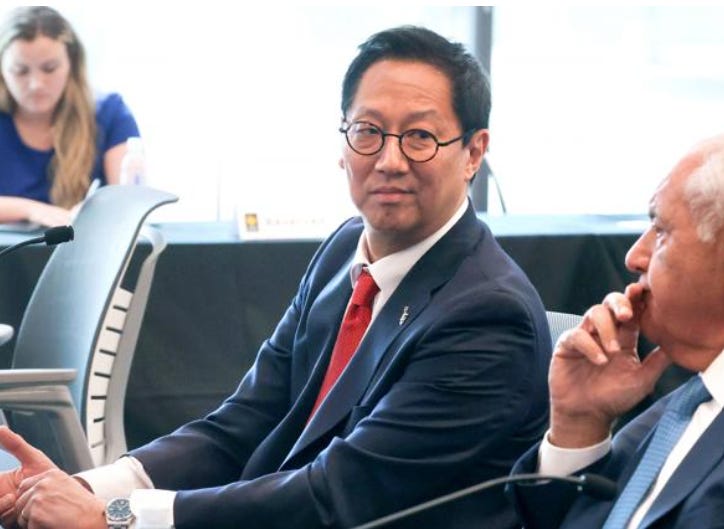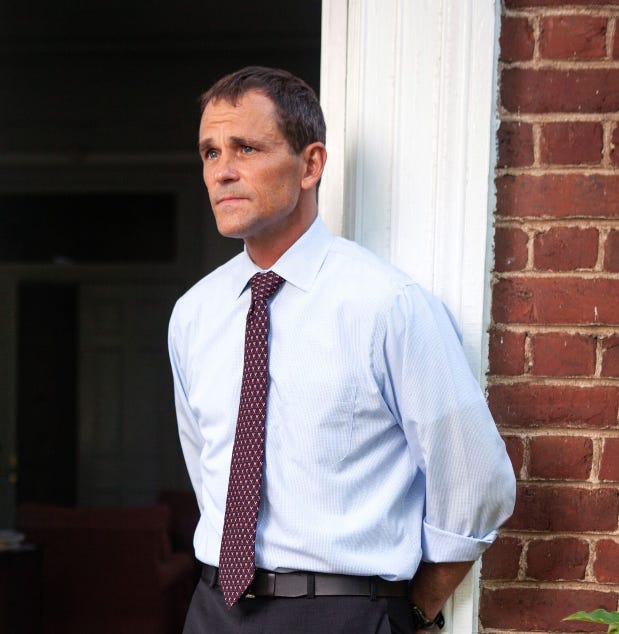Recently I decided write a letter to “The Cancelled Club,” the various people I’ve met who’ve been pestered by online mobs. Having been cancelled myself in 2003 and 2019, I’ve tried to devote much of my time since I retired in 2021 to giving advice and comfort based on what I learned, as well as helping run the MIT Free Speech Alliance (MIT alumni, please join!). I put together most of my advice in “Lessons for the Cancelled,” published at Dorian Abbot’s Heterodox STEM Substack.
Most comfort has to come personally, one-on-one or in meetings and conferences, but I wanted to write the letter because there have been quite a few free speech stories lately with happy endings. Keeping up one’s morale is crucial to fighting the powerful. Even if your own case isn’t going well, you can take comfort in seeing how well your friends are doing in our common fight against injustice. So I thought I’d compile a list of good stories and send it out. Then I realized the list would make a good Substack. So I’ll publish the letter here as well as send it out by email. This will be one of the rare open letters that isn’t demanding anything and isn’t signed by hundreds of people nobody cares about.
Dear Cancelled Club and Friends,
It seems like there’s a lot of good news this year, so I thought I’d send you a list of cheery items that can encourage all of us.
1. Nematode scientist Marisol Quintanilla got tenure at Michigan State this year. The Entomology Department voted against her but the dean reversed it. She had refused to submit a DEI statement for an annual review and was outspokenly Christian. The Foundation against Intolerance and Racism (FAIR), the Alumni Free Speech Alliance National, and UNC’s AFSA all sent letters on her behalf (the president of Michigan State was chancellor at UNC).
2. The number of Alumni Free Speech Alliance members continues to increase; it’s up to 22 now. AFSA had its first unassisted conference this spring in Charlotte, featuring a live appearance of The Babbling Beaver. Each member is a separate organization; AFSA is the umbrella organization to spread information and especially to assist new members. South and West, get going!
3. Gordon Klein's $22.5 million lawsuit against UCLA and business school Dean Anthony Bernardo has gone to trial. The trial, which started July 1, has gone very well for Gordon. Anybody close to LA should go see the show on July 22; Bernardo is testifying again. His employment contract says UCLA will indemnify him for compensatory damages, but not for punitive damages, which are a real possibility. The amount $22.5 million is a sober estimate of damages. It was unwise of the Dean to suspend someone with a million-per-year business, which for Gordon is consulting as an expert witness on damages. My Substack on the case is here. Legal Insurrection has good trial coverage— the student, Giovanni, who baited Klein, Klein and the Dean, the Dean’s second day testimony and Professor Caskey (who denied Gordon a raise for not assigning enough problem sets). All those reports make good recreational reading.
4. Timothy Jackson’s suit against the University of North Texas and numerous nasty people in his department settled for $725,000. They defame him and took away the journal he founded. Part of the settlement is to give it back to him. My Substack on Tim is here.
5. I, myself, have been doing well since I retired in 2021 (voluntarily, without asking the University to pay me to leave). I’ve taught 7th grade math, Substacked, written a Supreme Court amicus brief on the Texas v. TechLords case (NetChoice v. Paxton), been elected as Republican Precinctman, Perry 19, Monroe County and State Convention delegate, helped run the MIT Free Speech Alliance, and published with Mark Ramseyer an article, “Ostracism in Japan” that we submitted about the time he was cancelled for his Korean comfort women article. (That was a harrowing period for him— how many of us get an article in the New Yorker denouncing us?— but enterprising scholar that he got an excellent book out of it, The Comfort Women Hoax: A Fake Memoir, North Korean Spies, and Hit Squads in the Academic Swamp.1
You may recall that Provost Lauren Robel was the principal villain in my cancelling. She was one of the search committee’s two finalists for President of Indiana University. The Trustees rejected both and decided to restart the search. I’ve been playing with AI, and I asked ChatGPT, “Why didn’t Lauren Robel become president of Indiana University?” Its answer:
I’d heard rumors that the Trustees didn’t like how woke Lauren was. In her memo that got national publicity, she called me racist, sexist, homophobic, bigoted, vile, stupid, intolerant, reprehensible, loathsome. and stunningly ignorant. Trustees usually don’t mind if a candidate for president is a bad person, but they do mind it if a candidate is too colorful. Lauren usually is bland, boring, and bureaucratic, but apparently she couldn’t stand me. I am an unusually inspiring person.
6. The chief counsel of Indiana University, Jackie Simmons, was fired. It wasn’t on account of me. It was because of Law Professor Steve Sanders, who blogged on how the trustees hadn’t followed the legal rules for giving the outgoing president a bonus and how the university hired a law firm to do a FOIA request for Steve’s emails. One day, the chief counsel’s name was gone from the website, and there was an acting chief counsel instead.
7. Indiana University Law Professor Steve Conrad was railroaded into retiring, and banned from campus for wearing t-shirts complaining about his mistreatment. This was after he had been removed from his class for wearing a t-shirt saying, “I will not be railroaded into retirement.” The topic of the class? Free speech. The latest thing is a restraining order against him for wearing a t-shirt saying “Ann McFadden sold me down the river” while sitting at the Dagwood’s sandwich shop outdoor table across the street from the law school. His court hearing comes up August 8. The good news is that the ACLU has agreed to represent him, and that he is enjoying life listening to chamber music and reading in a Kierkegaard discussion group.
8. Philosophy Professor Alex Byrne of MIT was the subject of a heavily negative open letter signed by over 200 scholars of philosophy. They were unhappy with his participation in a scholarly report advising the Trump Administration on trans issues. You may have known that ontology is a controversial subject, but did you know it was this practical?
The letter said,
While we are not here calling for official or unofficial sanctions, we the undersigned believe that your behavior (a) perpetuates harm toward the trans community; (b) constitutes a failure to uphold your responsibilities as an academic; (c) is the result of an extremely misguided decision to collaborate with the Trump administration.
Why does this incident belong on a list of good news for free speech? —Because the attack was so weak and so polite that it can’t really be called a cancelling. Four years ago, Alex would have been overwhelmed by hundreds of hostile tweets and emails, threats of violence, and ostracism by his colleagues. Now, if you look at the open letter, you’ll see that it actually is argument rather than abuse. Poor arguments, but arguments. The extract I just gave is temperate, though strong, and it doesn’t call for him to be punished at all, much less fired. The signatories are almost entirely undergraduates and graduate students in a variety of fields including fields like mechnical engineering, and many of the signatories sign themselves as “Anonymous” out of shame. The only two MIT faculty to sign are well-known leftwing cranks, Linguistics Professor Michel DeGraff and Philosophy Professor Sally Haslanger. Byrne did get attacked in a major philosophy blog, the Daily Nous, which seems to be the source of the information that Byrne was one of the report’s 19 or so authors, but the attack was pretty mild, the comments were civil and from both sides, and Byrne was quoted in a follow-up blogpost.2 Byrne was also able quickly to defend himself in a national forum, a Washington Post op-ed.
I sense an atmosphere something like that of witchcraft accusations in 1695 Salem. There are always people ready to accuse you of witchcraft, but unlike in the hysteria of 1693, in 1695 the accusations would be subdued, and both accusers and bystanders would be somewhat ashamed. The names of the Salem defendants were officially cleared in 1711; we still have 14 years to go.
9. Santa Ono, former President of the University of Michigan, failed to get final approval in his attempt to become President of the University of Florida by reversing his views on DEI. He was approved by one fiduciary board, but flopped in the final one after people realized what was happening. I substacked on this. See also “In letter to GOP lawmakers, UF Board of Trustees defends Ono, presidential search process.”
10. Indiana University’s seven new trustees in 2025 include Sage Steele, fired from ESPN for being too conservative, and Jim Bopp, the lawyer behind the Citizens United campaign finance decision.
[Redacted: this item won’t be officially announced till August 1. Come back then and I’ll update this.]
12. The President of the University of Virginia, Jim Ryan, resigned in June. Bert Ellis one of the founders of The Jefferson Council (the UVA AFSA member) had been appointed a Visitor by Governor Youngkin. When Bert tried to get Jim Ryan fired for refusing to obey the Board’s instructions to dismantle DEI, Bert himself was fired by Youngkin. The Justice Department started an investigation of racial discrimination at UVA, however, perhaps in response to the website the Jefferson Council put together listing examples of DEI at the university. Ryan seems to have resigned rather than reform the university.
A dozen stories is a good round number, so I’ll stop there, except for a practical note. Many of you will also be interested in the taxation of settlement and judgments in lawsuits against universities. It depends on the type of claim— 1st amendment, defamation, employment, punitive, retaliation, etc.— and whether you but I’ve drafted a Substack on “The Plaintiff Charitable Trust and the Plaintiff Recovery Trust.” It isn’t published yet, but that link will take you to the draft.
IHS,
Eric
Upcoming Posts
(Posted here in the hope of comments before I publish)
Footnotes
J. Mark Ramseyer & Eric Rasmusen, "Ostracism in Japan," Asian Journal of Comparative Law, 19(2): 326-347 (August 2024) https://doi.org/10.1017/asjcl.2024.13. Groups ostracize members. Sometimes they do so to enforce welfare-maximizing norms, but other times ostracism reduces welfare. Japanese villages have long used ostracism as a tool for conformity, and the targets have sometimes sued in response. The cases that have reached the courts disproportionately involve welfare-reducing behavior by the community; for example, ostracism against targets who report corruption. The targets usually win the civil cases against ostracizers and prosecutors usually win the criminal cases. Yet the targets seem not to have sued for financial or injunctive relief, and the prosecutors seem not to have pushed for prison terms. Instead, they have used the courts for an informational end: to certify and publicize innocence. This end is of minor importance in normal litigation, but crucial for ostracism, as we explain using a formal model. We use case examples and the model to explore the factors that cause disputes to lead to ostracism and ostracisms to lead to litigation. https://doi.org/10.1017/asjcl.2024.13.
"Brief of Amicus Curiae Eric Rasmusen in Support of Respondents in 22-555 and Petitioners in 22-277, NetChoice v. Paxton," United States Supreme Court (2024). The large social media platforms are natural monopolies and common carriers, which should be regulated to forbid discrimination on the basis of political position. Texas and Florida did this, and their laws did not violate the 1st Amendment rights of the Tech Lords: they protected the speech of the millions of users. Standard economic theory tells us that natural monopolies should be regulated, and Twitter is more like the phone company than a magazine. https://www.supremecourt.gov/DocketPDF/22/22-555/298407/20240123110046414_Rasmusen%20Amicus%20Brief%20Filing.pdf.
Eric Rasmusen, "Amicus Curiae Brief of Eric Rasmusen in Support of Appellants, Members of the Licensing Board v. Planned Parenthood," Indiana Supreme Court. Plaintiff was granted a preliminary injunction against the new Indiana abortion law. In the appeal, I argue that the trial judge did not adequately attempt to balance the equities, and so should be granted no deference. https://www.rasmusen.org/published/2022_abortion_amicus_brief.pdf.
Eric Rasmusen, "Review of Mario Ferrero: The Political Economy of Indo-European Polytheism: How to Deal with Too Many Gods" Journal of Economics(Zeitschrift fur Nationalokonomie), (forthcoming). https://www.rasmusen.org/published/Rasmusen-2023-polytheism_Zeitschrift.pdf.
The mild attacks in 2025 are in contrast to Byrne’s treatment around 2022 for being a heretic on gender dysphoria. The Daily Nous has a balanced 2023 post on that reporting on Byrne’s Quillette article on his trouble getting published and the strange withdrawal of Oxford University Press from its book contract with him.










Good to know you’re doing well. Do you think cancellations can be a blessing in disguise?
This made me chuckle: “Lauren usually is bland, boring, and bureaucratic, but apparently she couldn’t stand me. I am an unusually inspiring person.”